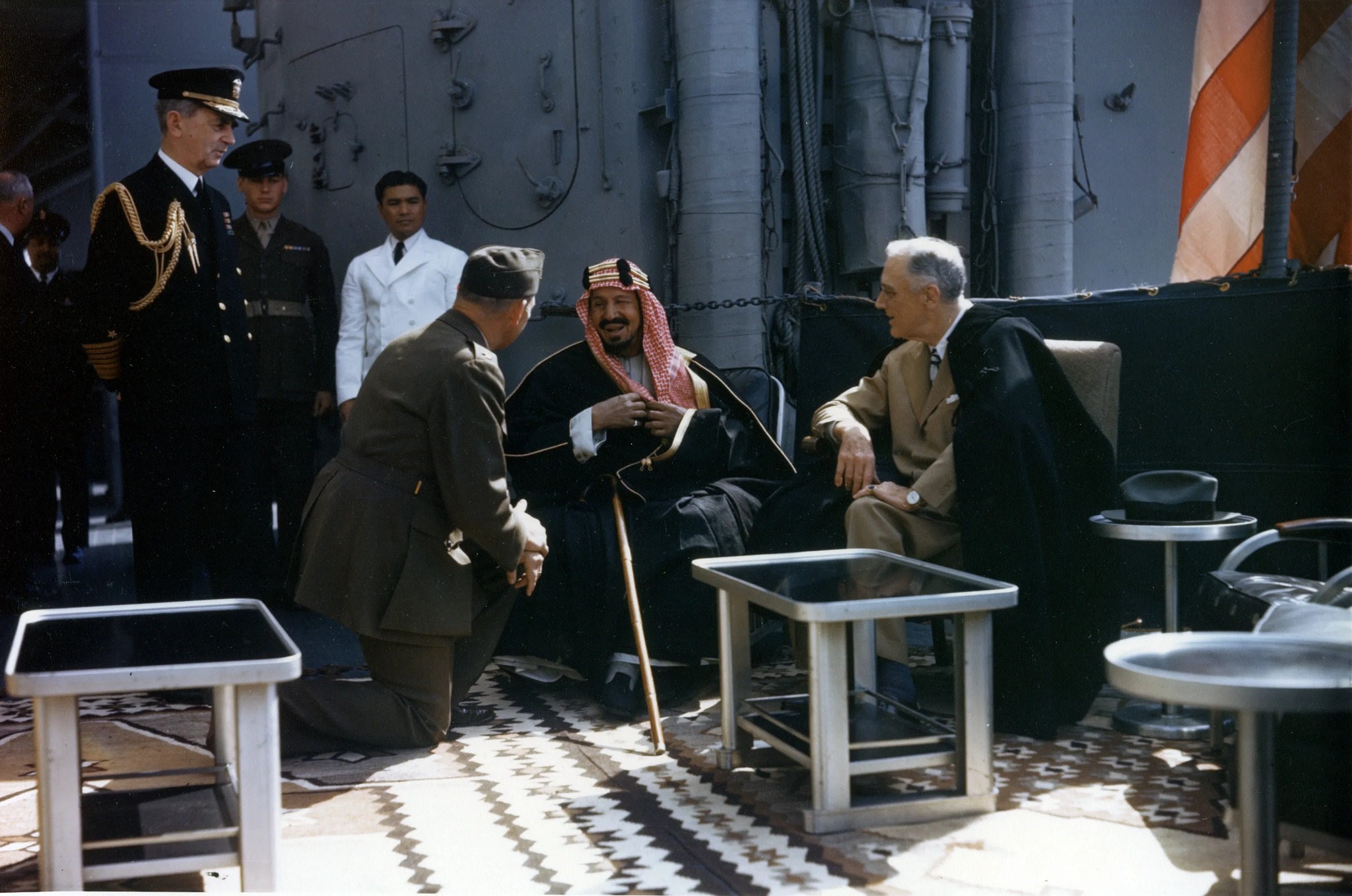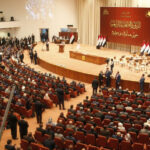The Flawed Oil Policies of Kurdistan’s Leadership, A Lesson from the Quincy Agreement

The image of the historic meeting between Saudi King Abdulaziz bin Saud and U.S. President Franklin D. Roosevelt aboard the battleship Quincy in the Red Sea on Valentine’s Day 1945 holds immense significance. This meeting laid the groundwork for the Quincy Agreement, which established the exchange of Saudi oil for U.S. protection and cemented the dollar as the global currency for oil transactions. This pact shaped U.S.-Middle Eastern relations and global finance for decades.
The agreement, originally set for 60 years and renewable, has since lost its relevance as the U.S. reduced its dependency on Saudi oil under President Obama. The shift to renewable energy and America’s rise as a major oil and gas producer transformed the dynamics of global oil markets. Saudi Arabia adapted by pivoting to East Asia as a primary market.
Meanwhile, the leadership of the Kurdistan Regional Government (KRG), particularly the Barzani family, miscalculated their oil policy. Massoud Barzani believed he could replicate Saudi Arabia’s strategic partnership with the U.S., famously claiming that ExxonMobil’s president was “stronger than the U.S. president.” This delusion ignored the shifting realities of global geopolitics, as demonstrated by Rex Tillerson’s brief and turbulent tenure as Secretary of State.
The Barzani family’s overreliance on oil has led to economic crises, including the inability to pay salaries. Their vision of turning Kurdistan into another Saudi Arabia failed. Claims of vast oil reserves, such as Ashti Hawrami’s assertion of 45 billion barrels in Karahanjir, proved overly optimistic. Gradually, international oil companies withdrew from Kurdistan, culminating in the disastrous 2017 independence referendum. Promised oil exports of one million barrels a day by 2015 never materialized, and economic hardships deepened.
In contrast, Saudi Arabia and the UAE have understood the necessity of diversifying their economies. Under Mohammed bin Salman, Saudi Arabia has shifted focus from military conflicts to economic competition, fostering ties with China, India, and BRICS nations while investing heavily in technology. The global transition to renewable energy and rapid advancements in artificial intelligence have diminished oil’s future value. Leaders who fail to adapt to these realities face irrelevance and ridicule, as exemplified by Bashar al-Assad.
Massoud Barzani’s policies, grounded in a fundamental misunderstanding of politics, economics, and geopolitics, have been catastrophic for Kurdistan. His inability to admit and correct mistakes has prolonged the region’s suffering. A politician’s tragedy is not the act of erring but the refusal to evolve. This principle applies universally: unchecked ego leads to inevitable downfall.
The Kurdistan Region of Iraq must adopt a new strategy that moves beyond reliance on oil and fantasies of external protection or statehood through regional fragmentation. The new cabinet has a critical choice to make: cling to the failed policies of the past or chart a progressive course focused on political, economic, social, and environmental development.
Author Profile
- Diyar Harki is an independent investigative journalist and human rights advocate. As a member of the National Union of Journalists (NUJ), he focuses on exposing corruption and human rights abuses in Kurdistan and Iraq. He voluntarily contributes to Kurdfile Media.
 Kurdistan18 January 2026Will the Terrorists Be Released?
Kurdistan18 January 2026Will the Terrorists Be Released? Opinion17 January 2026A Risk That Could Reshape the Kurdistan Region
Opinion17 January 2026A Risk That Could Reshape the Kurdistan Region Reports7 January 2026Kurdistan MPs Receive Millions in Salaries as Parliament Remains Paralyzed
Reports7 January 2026Kurdistan MPs Receive Millions in Salaries as Parliament Remains Paralyzed Political3 January 202634% of Kurdish MPs in Iraqi Parliament Lack Arabic Proficiency
Political3 January 202634% of Kurdish MPs in Iraqi Parliament Lack Arabic Proficiency

